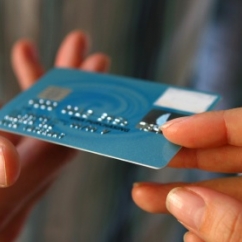Articles and News
Paper or Plastic? Beware The Pitfalls Of Payroll Debit Cards July 17, 2013 (0 comments)

New York, NY—Have you been pitched on the idea of paying your employees with a pre-loaded debit card rather than a standard paper check? It sounds like a great idea, saving both your money and the environment—but according to a recent article by CBS Moneywatch, it’s not such a great deal for the employee.
The payroll card industry has tripled in the past five years and is expected to double again by 2015. But it’s also drawing concern from consumer advocate groups, because many of the cards also come loaded with fees for the user. Happy commercials like this one emphasize the cards’ convenience, but neglect to mention the attendant fees that can eat into the cardholder’s earnings.
While regulators have banned many fees on ordinary debit and credit cards, prepaid cards are thus far exempt from those laws, says the Moneywatch article. Some of the more egregious fees on these cards come from not spending down the balance fast enough or even simply checking one’s balance—in essence, punishing the employee for being fiscally responsible.
Even though fees have come down as the industry has grown more competitive, and fees vary by card, consumers still could end up spending $30 or more per month of their take-home pay in fees, depending on how they use their card.
The cards can be a boon for employees who don’t have a bank account, says the article, but criticizes employers who don’t offer any other choice to employees who do have a bank account.
New York State lawmakers are already considering whether to regulate payroll cards, and the Federal Consumer Financial Protection Bureau is expected to address the issue soon. Meanwhile, if you are being pitched to switch to payroll cards, make sure you understand all the ramifications to your employees, and to avoid angry backlash, give your employees the option to choose another method of payment.
Top image: virginiaemploymentlawjournal.com







